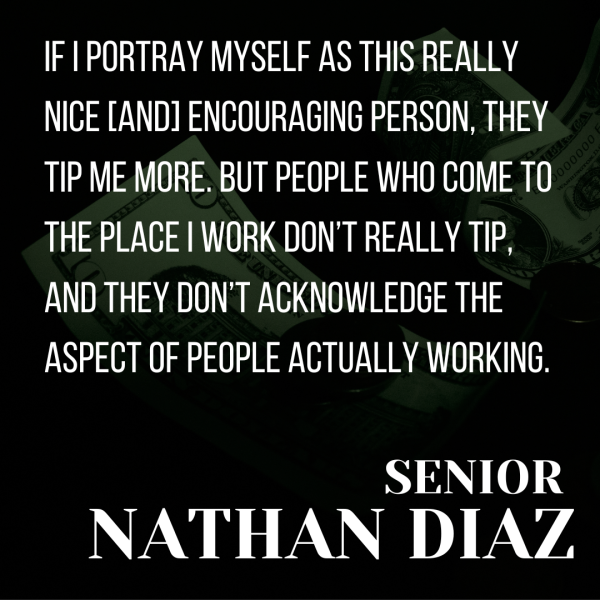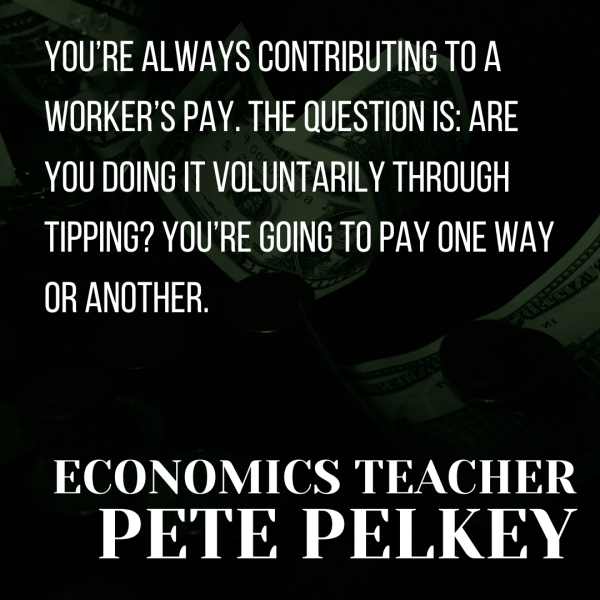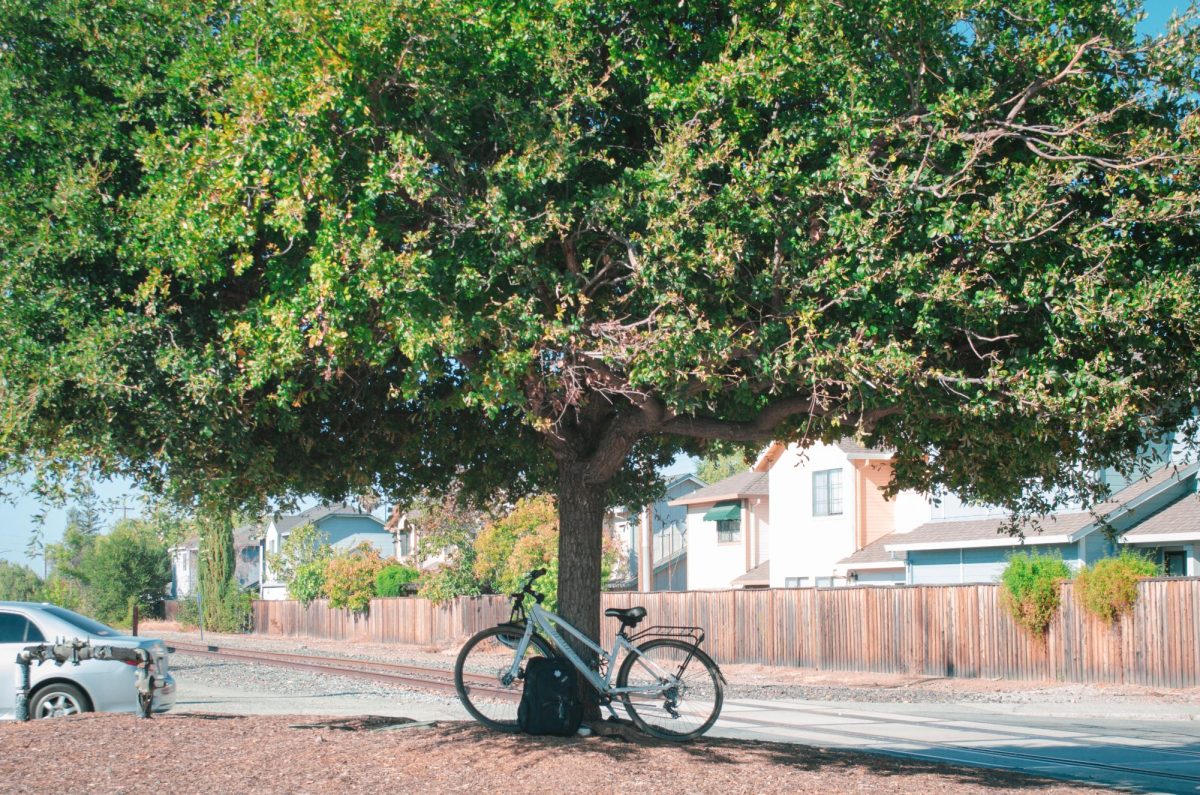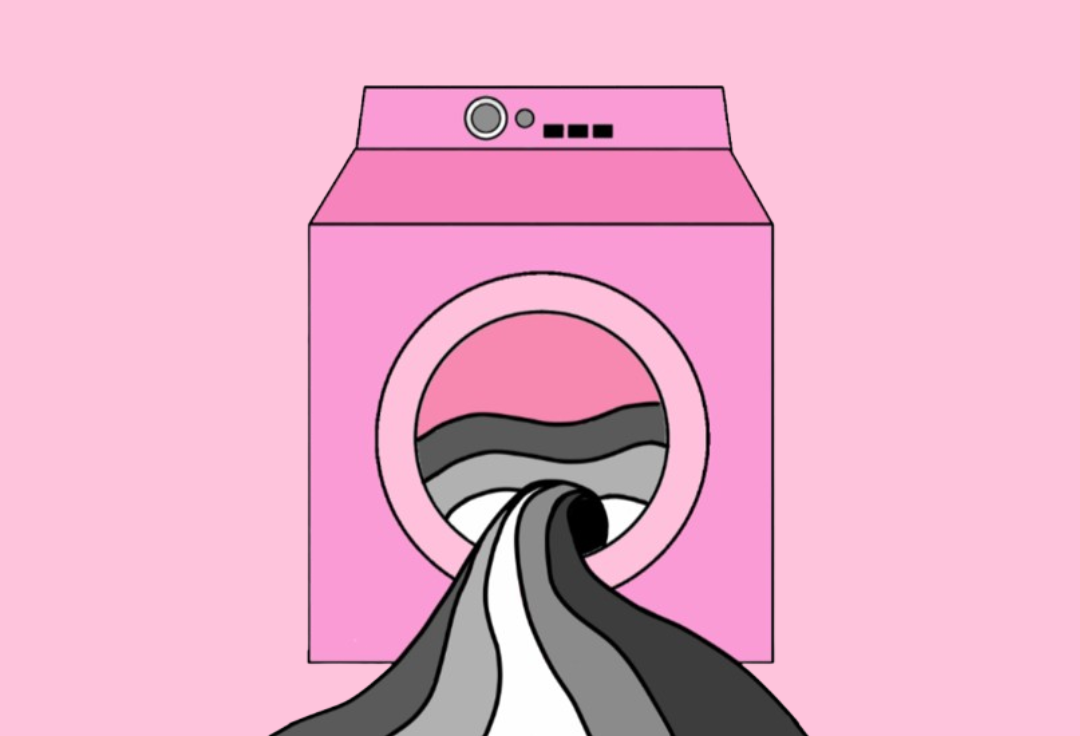Economics teacher and former chauffeur Pete Pelkey recalls his days as a limousine driver, where he once received a tip of 70 dollars and a bottle of champagne from a client. Generous tipping from customers allowed him to get through the struggles he endured during college.
“That was the money I was going to spend that day. That would buy me my dinner,” Pelkey said. “[The tip] really determined whether I was going to have dinner or not.”
With tipping playing a large role in the service industry, it has become a staple within restaurant etiquette. Many factors come into play when it comes to how much to tip, if at all. To Pelkey, culture is significant in whether people tip or not, as those who come from cultures that don’t have a tipping system play a large role in the overall tipping consensus in more diverse communities, such as Cupertino.
“In America generally, you tip anything from 10% to 20%,” Pelkey said. “[In] Cupertino, there doesn’t seem to be much of a tipping culture. It probably has to do with [the] immigrant population that comes into [Cupertino] from places where they don’t tip and other cultures where they don’t tip.”
Senior and Happy Lemon employee Grace Wang believes that the type of business is crucial when considering tipping. For example, whether a restaurant is sit-down or grab-and-go affects whether she tips or not.
“People should definitely tip for restaurants,” Wang said. “If you’re sitting down, you should be tipping 20% because they’re doing so much to help you and taking care of your plates. I feel like in [the] boba [industry], it’s not an expectation to tip, especially since you’re not getting any customer service. They’re just taking an order and making your drink.”
After working at Happy Lemon for over a year managing customers and making drinks, Wang’s income from tipping was relatively low in comparison to her paycheck. As a result of her insight into working in customer service, Wang tips less now due to the lack of tipping in her workplace.
“Now that I work at a boba place, I actually feel less bad about not tipping because people don’t really tip me a ton,” Wang said. “I’m also working in the service industry so I don’t feel too bad.”
Similar to Wang, senior Nathan Diaz works at Somi Somi, providing customer service and making desserts for customers. In contrast, Diaz is heavily impacted by his experience with a job in the service industry, affecting the connection he feels with workers in a similar industry.
“I feel like I’m more inclined to actually tip because now I’m experiencing what people have to deal with,” Diaz said. “There’s a lot of instances where I’ve had to deal with customers being very impatient. Even though we’re working really hard, they don’t really see what we’re going through, so I feel more inclined to tip.”
As someone who experienced the hard work of lower-paying jobs that rely on tipping, Pelkey acknowledges the grueling work and effort that goes into the service industry, whether because of impolite customers or busy schedules. He believes that tipping is the reward that comes with such hard work.
“When you’re doing rushes, you’re running, holding many plates of food, cleaning up after so you can get the [restaurant] going,” Pelkey said. “There’s a lot of stuff asked of you, and it can be a grueling job. But on the other hand, it’s worth doing if you come home with that cash in your pocket. [Tipping] is the incentive of going into that job.”
Since tipping is not legally enforced, many question the stability of tipping accounting for a large portion of service industry workers’ wages. However, Pelkey believes that tipping is ethical because tipping not only improves the payment of workers but serves as an incentive for businesses to improve overall.
“15% of the bill is going to be your tax, so from [tips] they’re getting a little extra wage that is actually tax free,” Pelkey said. “It’s like free money, discretionary income that you can have at the end of the day. It encourages good service. I tip more if they’re pleasant, and that encourages them to be pleasant and give me good service.”
Although tipping might be tax-free, the instability of tipping culture due to tipping being optional results in many workers in customer service making less than minimum wage. Except for California, most states are able to compromise against minimum wage for workers who receive income through tipping. Wang believes that this policy is extremely unethical because many workers are deducted heavily in terms of wage, due to the assumption that they will be receiving tips that aren’t guaranteed.
“To an extent, it’s unfair how a lot of waitresses and waiters are paid way below minimum wage because their paycheck is expected to be from tips,” Wang said. “I think that is really unethical. Tips should be more of an add-on, but the fact that they’re not being paid enough means that the system is a little bit messed up.”

Due to its optionality, tipping culture fosters varying opinions based on many factors that bring up both the ethicality of tipping and the treatment of workers through wages. While Wang believes tipping exploits unfair reductions of income for workers in the service industry, for Pelkey, tipping is an important aspect of jobs that keeps the demand for jobs in the service industry high.
“Waiters are generally working for tips,” Pelkey said. “They’re not working for their paycheck, and so that’s why they’re going into these jobs because they know [they] can make money. If we take [tipping] away, then what’s anybody’s incentive to be a waiter?”













